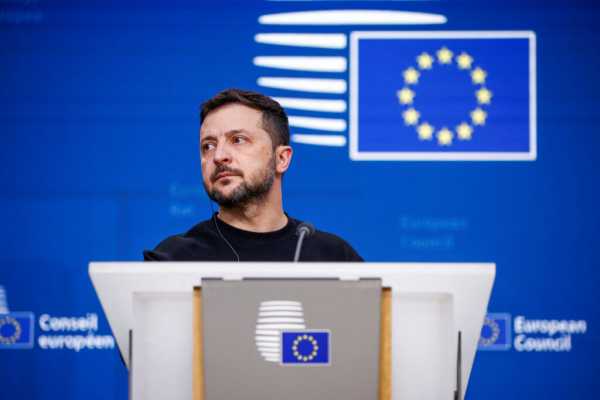Two House committees were so concerned by the explanation that they requested an array of internal documents related to the reports on sexual misconduct and domestic violence.
-
Send any friend a story
As a subscriber, you have 10 gift articles to give each month. Anyone can read what you share.
Give this article
- Read in app

One investigation found that more than 10,000 employees of agencies within the Department of Homeland Security had experienced sexual harassment or sexual misconduct at work.
WASHINGTON — Under questioning by staff members from two House committees, senior officials working for the Department of Homeland Security’s inspector general said they removed findings about sexual misconduct and domestic violence committed by employees from investigative reports because the department was already known to have those problems, according to the committees.
The Democratic leaders of the Committee on Oversight and Reform and the Homeland Security Committee were so concerned by the explanation for the omissions, provided during a briefing call late last month, that on Tuesday they formally requested a wide array of internal documents surrounding the investigations.
One investigation found that more than 10,000 employees of Customs and Border Protection, Immigration and Customs Enforcement, the Secret Service and the Transportation Security Administration had experienced sexual harassment or sexual misconduct at work — more than one-third of those surveyed, according to an unpublished draft report dated December 2020.
The draft also described a pattern of the agencies using cash payments, with payouts as high as $255,000, to settle sexual harassment complaints without investigating or disciplining the perpetrators.
The New York Times reported last month on the removal of the damaging findings, after reviewing internal documents first obtained by the Project on Government Oversight, an independent watchdog group in Washington.
In a letter requesting those and other documents, the House committees noted that during the briefing call, members of the inspector general’s staff said that “the facts removed from these reports were already known to D.H.S., implying that there was no need for them to be included.”
But in notes on a draft of one of the investigative reports, top aides to the inspector general, Joseph V. Cuffari, said the findings detailing sexual misconduct in the department should be removed because they were “inflammatory” or were “questioning the disciplinary outcome in these cases.”
A homeland security spokeswoman noted that the omissions took place during the Trump administration, and that “current D.H.S. leadership was not aware of it until the New York Times article last month.”
In a memo on April 7, Alejandro N. Mayorkas, the homeland security secretary, said he was initiating a review of the department’s disciplinary processes for employee misconduct.
In one example from the draft report on sexual misconduct, Kristen Fredricks, the inspector general’s chief of staff, objected to including the finding that the department’s law enforcement agencies had paid 21 employees nearly $1 million in settlements from sexual-harassment-related complaints, despite inspectors finding “in most instances” no record of an investigation or disciplinary action in those cases.
“Faulty premise,” Ms. Fredricks wrote in comments about the draft report. “Why/how are you correlating settlements with investigations and disciplinary action???”
Mr. Cuffari also directed his staff to remove parts of another draft report on domestic violence committed by officers in the department’s law enforcement agencies because it was “second-guessing D.H.S. disciplinary decisions without full facts.”
The inspector general’s office did not respond to emailed requests for comment on Tuesday.
Mr. Cuffari, a Trump appointee who has served as inspector general since July 2019, has previously blocked investigations, against his staff’s recommendations. He blocked inquiries into the Secret Service’s role in the violent dispersal of protests against police brutality outside the White House in 2020, and on the spread of Covid-19 within that agency. He also delayed an inquiry into whether senior homeland security officials demoted an employee who had criticized the Trump administration.
Inspectors general are independent, internal watchdogs for federal agencies, though they can be removed by the president. When asked in late April if President Biden would fire Mr. Cuffari for interfering with inquiries, Jen Psaki, the White House press secretary, said only that “there can be changes made.”
A White House official later said Mr. Biden would leave it to Mr. Mayorkas, the homeland security secretary, to decide how to handle the revelations. But only the president can fire an inspector general, and a department secretary does not typically interfere with the work of the watchdog office.
The letter from the House committees also said the inspector general’s office “could not provide a timeline” for when a final version of the sexual misconduct report would be published. The draft report obtained by The Times was dated December 2020. The final version of the other report, on domestic violence, was published in November 2020.
The Senate Judiciary Committee separately wrote Mr. Cuffari in late April, asking when his office planned on releasing the report on sexual misconduct. The letter set a deadline of May 17 for a response.
“Sexual harassment and misconduct in agency ranks always demand immediate action,” the letter said. “Any efforts by an O.I.G. to obscure or downplay the seriousness or pervasiveness of the issue, or to improperly delay releasing evidence of misconduct, are inappropriate.”
Mr. Cuffari was absent from a meeting of federal inspectors general that Mr. Biden held at the White House less than two weeks ago. Eric Soskin, the inspector general for the Transportation Department, who was also appointed by Mr. Trump, attended the event.
“I want to make it clear to the press that’s here,” Mr. Biden said at the time. “Nobody in my administration is telling the inspector generals what they have to do. They’re totally independent. They make a judgment.”
Peter Baker contributed reporting.
Source: nytimes.com



